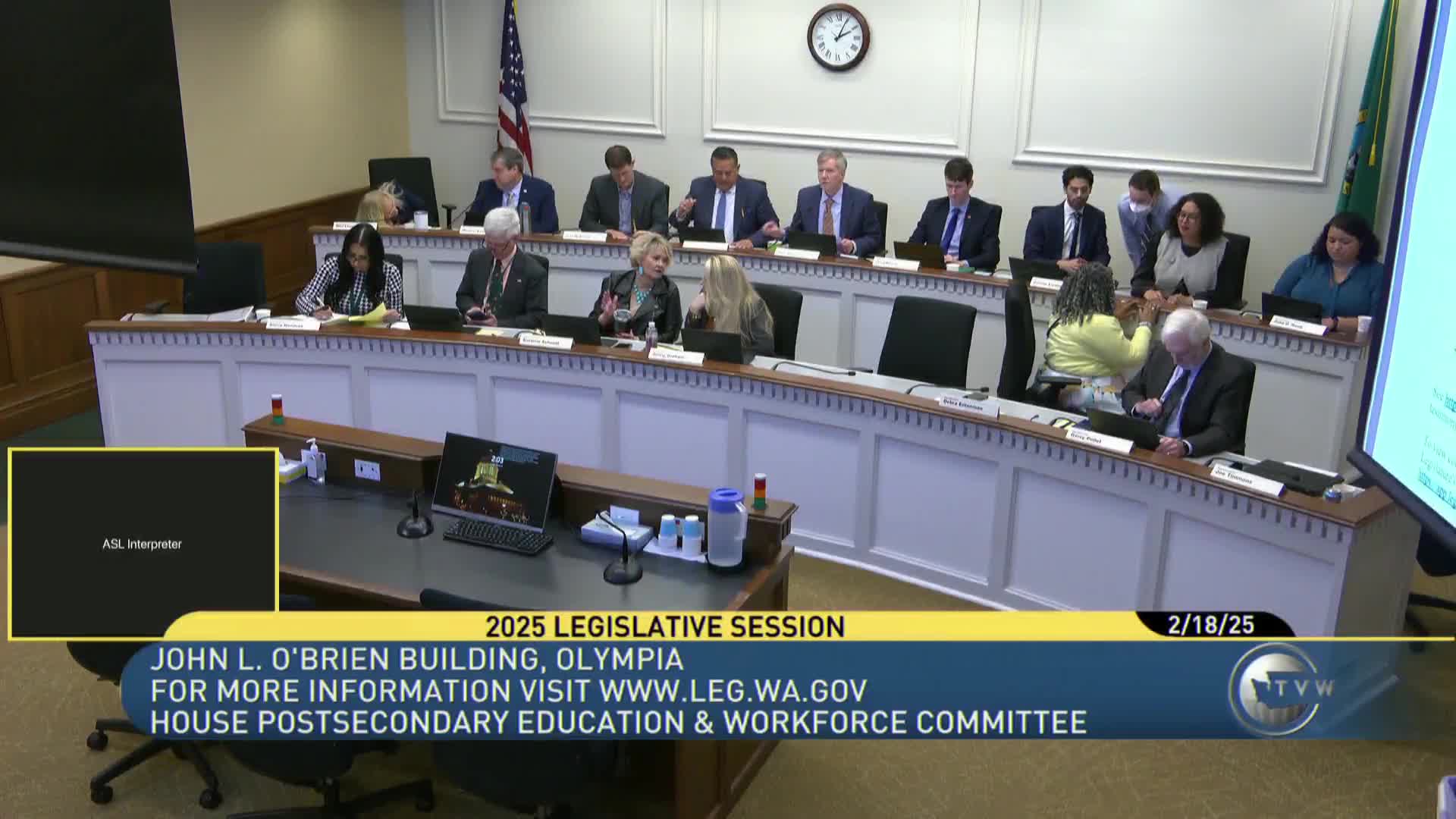Article not found
This article is no longer available. But don't worry—we've gathered other articles that discuss the same topic.
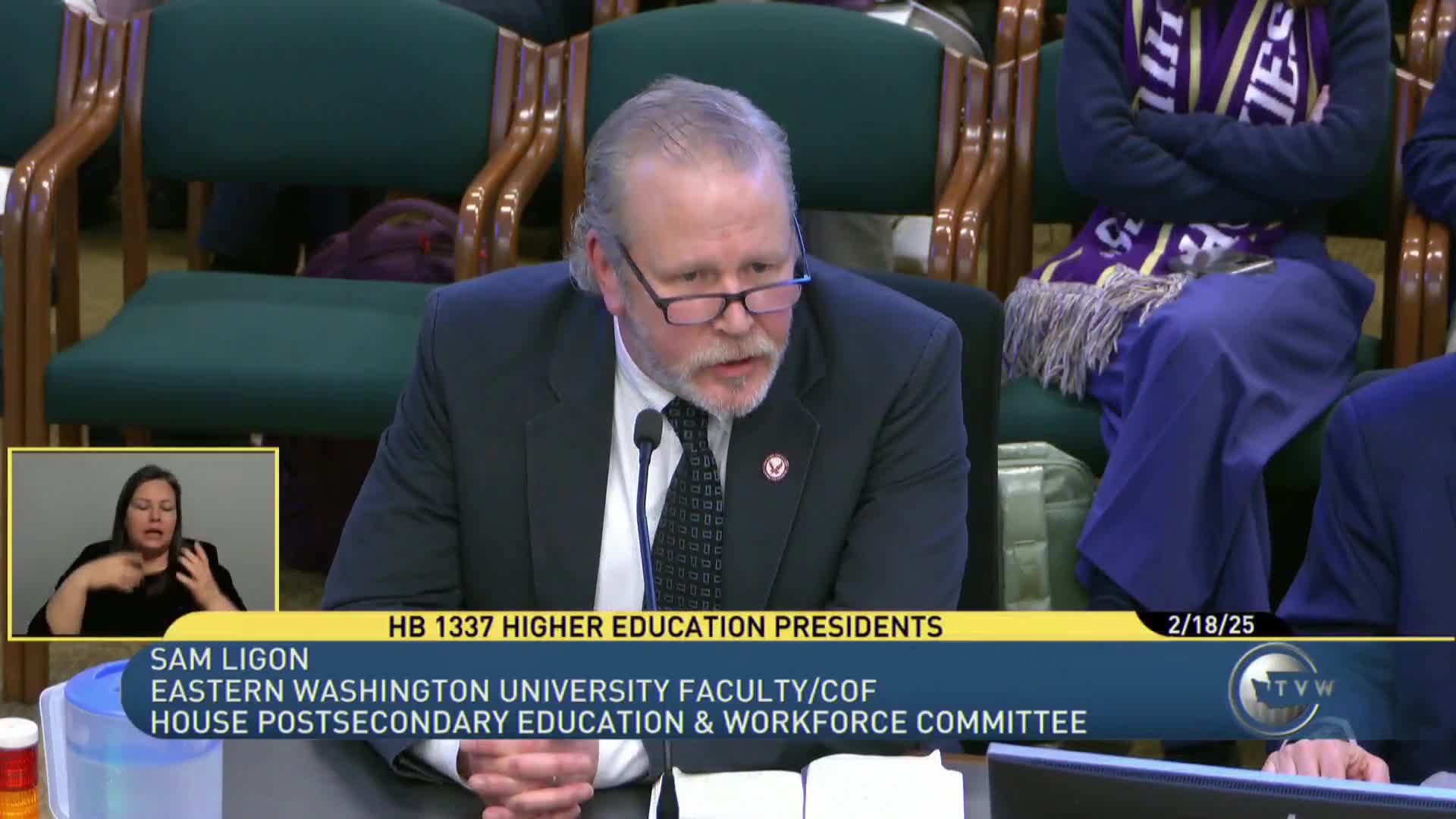
Large turnout as committee hears competing views on medication-abortion access at public campuses
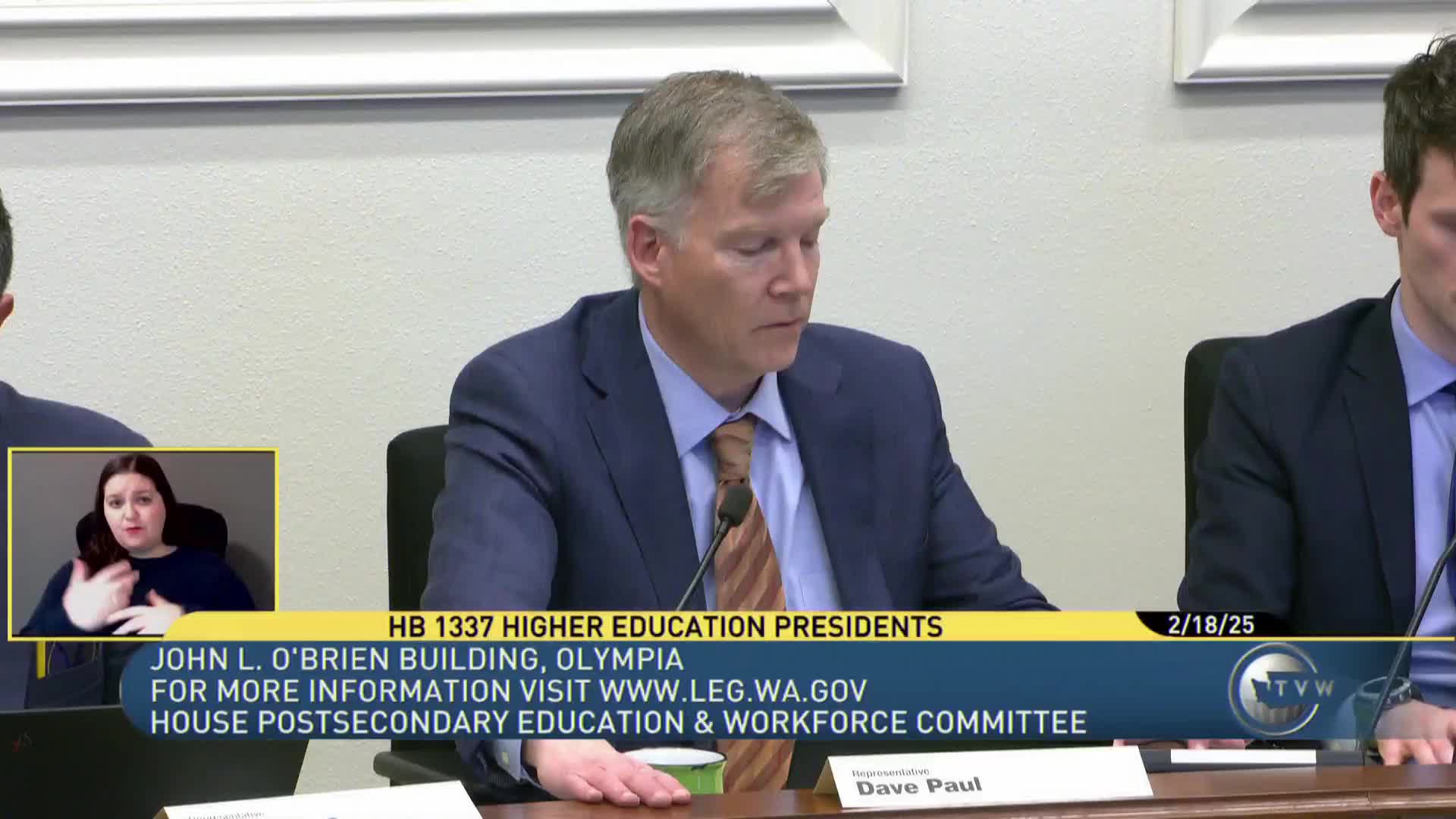
Students and faculty push bill to make regents’ presidential selection process more transparent
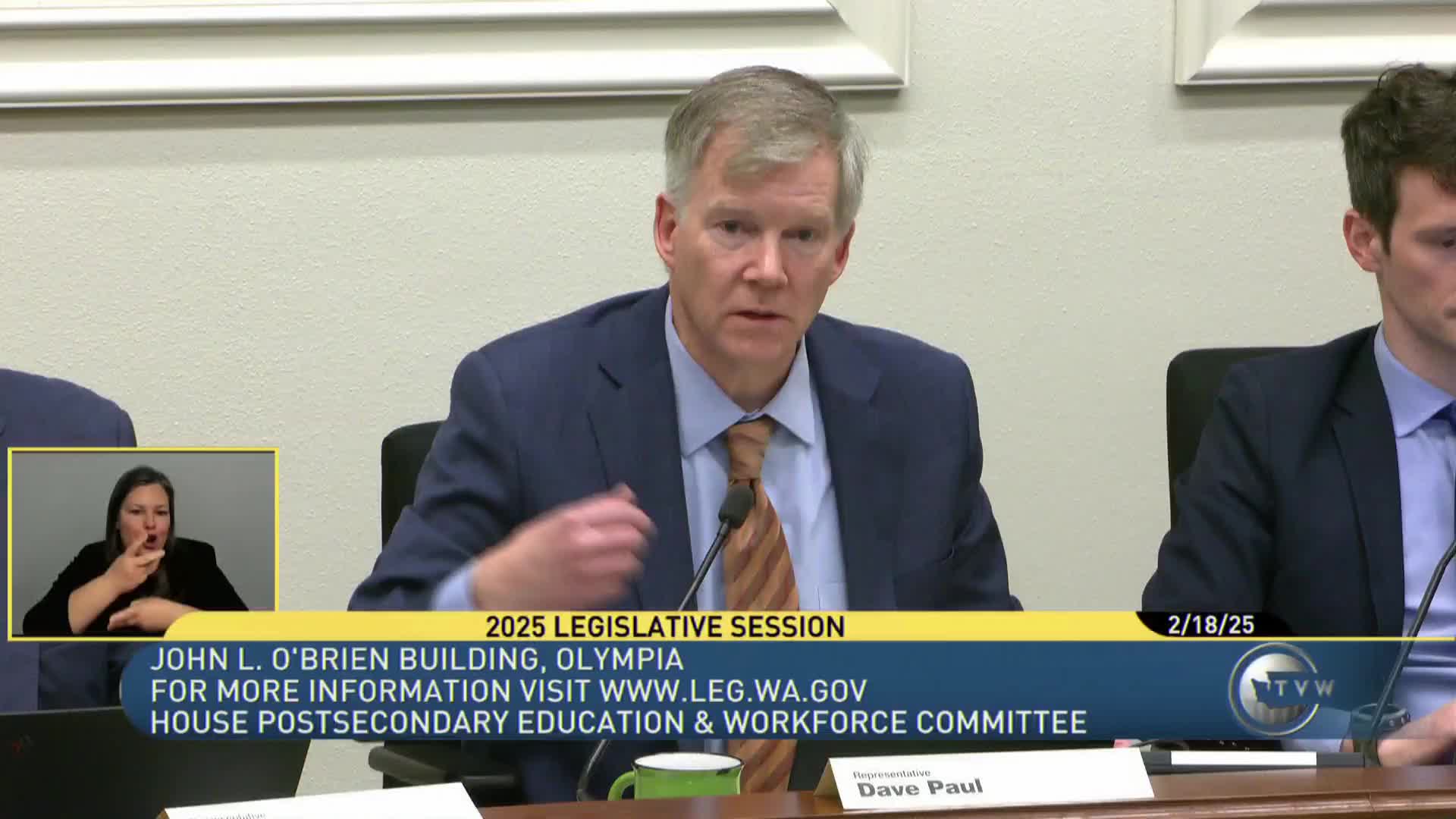
Bill to change home care aide testing drawn out for public comment after broad testimony on testing delays
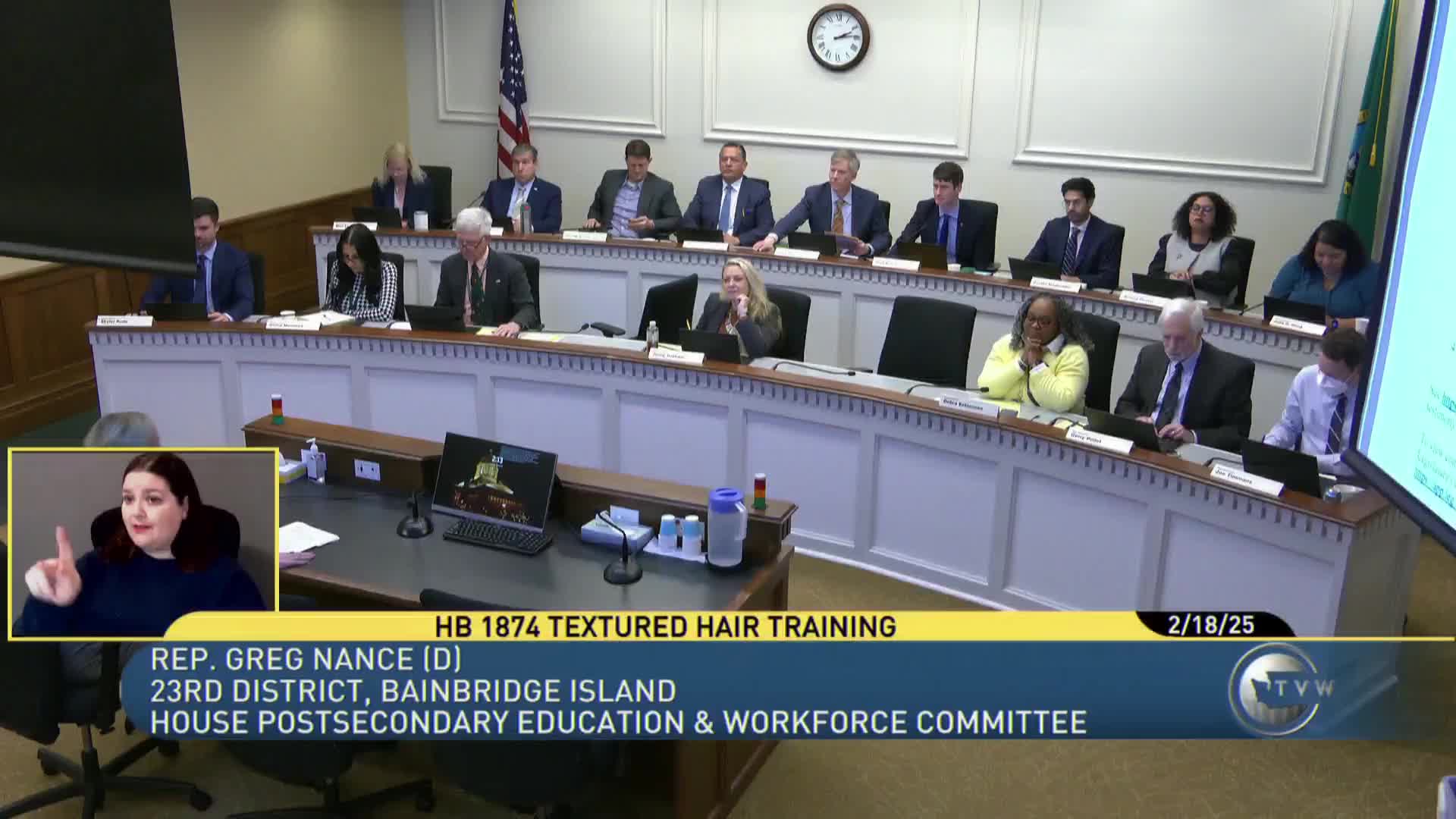
Committee hears support for requirement to teach textured hair in cosmetology programs
